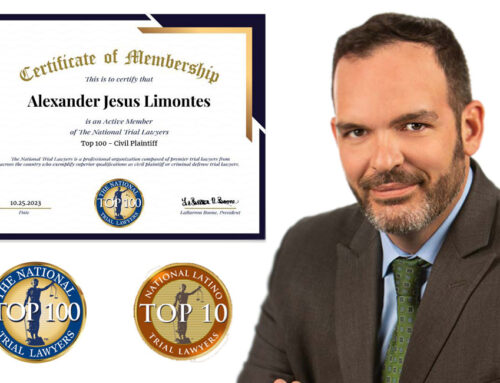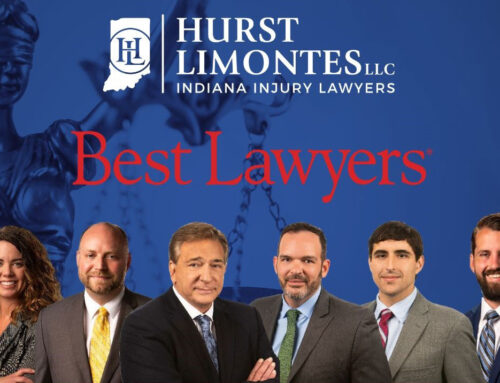Alex Limontes, a personal injury lawyer from the Law Office of Hurst Limontes LLC, presented his first argument in front of the Indiana Supreme Court on Tuesday November 22, 2016. It was a case of first impression in Indiana which asked the state’s highest court to decide whether an undocumented 
The case involved an undocumented immigrant, Noe Escamilla, who sustained a permanent injury while working at a construction site. Noe was working as a sub-contractor on a construction site in Crawfordsville, IN when he slipped and fell on ice that was negligently allowed to remain on the work site and posed a hazard for all the workers there. He filed suit against the General contractor, Shiel Sexton, for failing to maintain a safe work site claiming damages which included lost wages. In 2015, the trial court issued an order that stated Shiel Sexton could admit evidence of Noe Escamilla’s immigration status during his jury trial.
Escamilla appealed and the Court of Appeals heard argument on January 6, 2016, where Alex also argued on behalf of Escamilla as amicus counsel. They ruled the trial court was correct in allowing evidence of Mr. Escamilla’s Immigration Status and that the jury could consider what he would have made in his country of origin (Mexican Pesos) when determining his lost wage claim. The case was eventually appealed to the Indiana Supreme Court.
Supreme Court Oral Argument
Alex argued as amicus counsel for the Indiana Trial Lawyers Association and reminded the court the purposes of Tort Law are to hold the negligent party accountable, deter the negligent behavior, and make the injured party whole. This, Alex argued, requires the court treat an undocumented worker the same as a U.S. citizen so that the negligent party, in this case the employer who hired an undocumented worker, is held accountable and not innocent parties such as the injured individual or American taxpayers. If this is to be achieved the injured parties immigration status must be excluded so as to not prejudice the jury.
If the Court were to rule in Shiel Sexton’s favor Hoosier and American lives would be negatively impacted in a multitude of ways. First, if employers like Shiel Sexton are not held accountable to undocumented workers the same as they are to American workers it will encourage them to hire more undocumented people because they know they will have to pay less if they are hurt on the job. Second, if the employer isn’t forced to compensate the injured party for their injuries the cost of care will fall on Hoosier and American taxpayers. Last, these companies will have less of an incentive to provide a safe workplace, making it more dangerous for U.S. citizens as well.
Alex cited important cases from other states dealing with the same issue, including the deep red state of Texas, where they grant equal justice to all plaintiffs no matter their immigration status. He advised the court that one of the key reasons states like Texas have adopted this view is due to the fact that if these companies who hired undocumented workers are not required to compensate them for their injuries, then taxpayers who have done nothing wrong will be.
Alex also pointed out that federal immigration laws are focused on the employer not the undocumented person, which is why they impose heavy sanctions on employers that violate the law. If we allow them to hire these people and avoid paying them full compensation when they are hurt we are only encouraging them to hire more which is contrary to the Immigration Act.
Finally, Alex concluded by urging the Court to rule that immigration status not be allowed to come in before a jury and make sure the employers who hired these undocumented workers are held responsible, not other Hoosiers and Americans.




